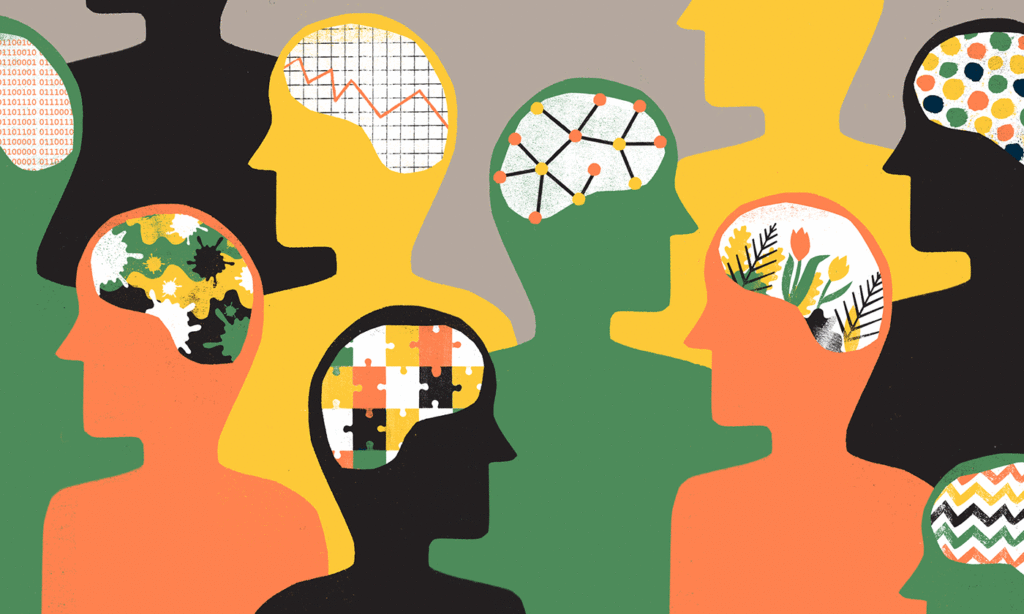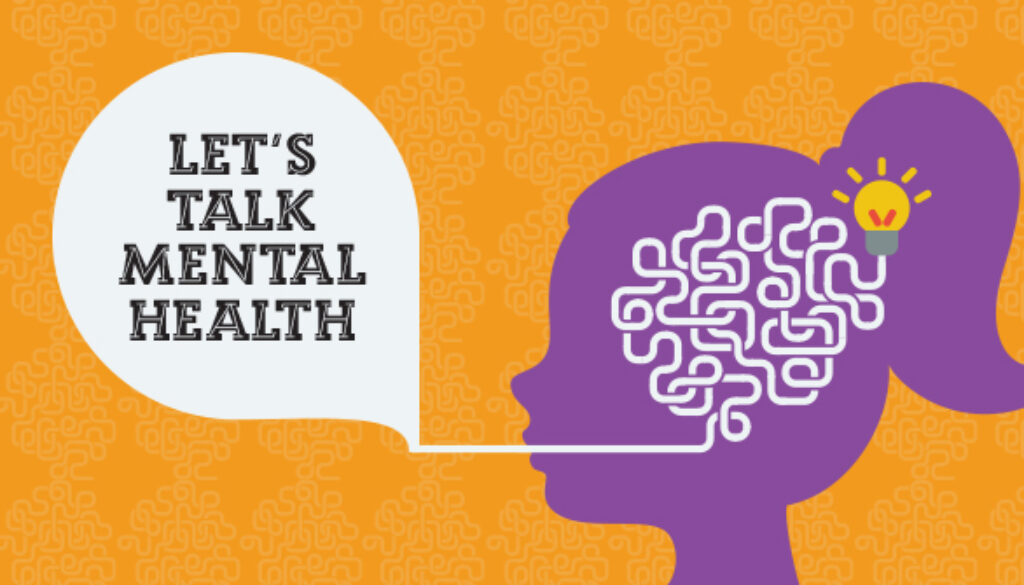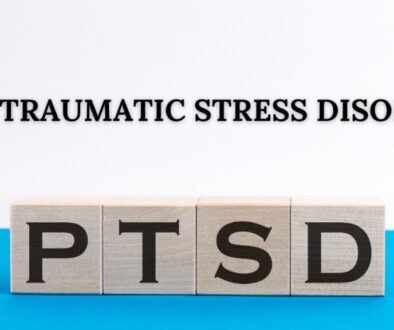Breaking the Stigma: Talking About Mental Health
Talking About Mental Health is essential in breaking down the barriers and stigma associated with mental health conditions. In today’s society, mental health stigma continues to be a significant barrier that prevents individuals from seeking help and support. The negative perceptions and stereotypes surrounding mental health can lead to discrimination, isolation, and even reluctance to discuss one’s own mental well-being. However, it is crucial to break this stigma and foster a more understanding and inclusive society. In this article, we will explore the origins of mental health stigma, the impact it has on individuals and society, and discuss strategies for effectively addressing and overcoming this stigma.
What is Mental Health Stigma?
Mental health stigma refers to the negative attitudes, stereotypes, and discrimination that surround mental health conditions. It is a social construct that labels individuals with mental illness as different or abnormal, often leading to judgment and exclusion from society. Stigma can manifest in various ways, including:
- Stereotyping: Mental health conditions are often stereotypically portrayed as dangerous, unpredictable, or incurable, which can create fear and misunderstanding.
- Discrimination: Individuals with mental health issues may face discrimination in areas such as employment, housing, relationships, and healthcare. They may be denied opportunities or treated unfairly due to stigma.
- Prejudice: Stigma perpetuates prejudices, making it difficult for people with mental health conditions to be accepted and valued for who they are.
- Self-stigma: Internalized stigma can cause individuals to internalize negative beliefs and feel ashamed or guilty about their mental health condition, which can lead to self-esteem issues and reluctance to seek help.
- Lack of understanding: Stigma often stems from ignorance about mental health conditions, leading to misconceptions and lack of knowledge about the nature and causes of mental illness.

Impact on Individuals and Society
Mental health stigma has significant consequences for both individuals and society as a whole:
- Personal impact: Stigma can have detrimental effects on an individual’s mental, emotional, and physical well-being. It may discourage individuals from seeking help, leading to delayed treatment and worsening of symptoms. Stigma can also disrupt relationships and contribute to social isolation and feelings of shame or guilt.
- Reluctance to seek help: Due to fear of judgment or discrimination, individuals may hesitate to reach out for support or professional help. This can result in inadequate or delayed treatment, leading to potential negative outcomes.
- Barriers to recovery: Stigma can hinder the recovery process for individuals with mental health conditions. Negative attitudes and perceptions may prevent individuals from accessing the appropriate care and support they need to manage their condition effectively.
- Economic burden: Mental health stigma can lead to high economic costs for individuals, communities, and healthcare systems. Reduced productivity, increased absenteeism from work, and increased healthcare utilization can all contribute to the financial burden.
- Social exclusion: Stigma often results in the social exclusion of individuals with mental health conditions. This can lead to feelings of loneliness, reduced social support networks, and limited opportunities for education, employment, and community engagement.
- Public health impact: Stigma can hinder public health efforts by impeding prevention efforts, early intervention, and effective treatment for mental health disorders. It perpetuates a cycle of fear, silence, and misinformation.
The Origins of Mental Health Stigma
Mental health stigma has deep roots in historical context and cultural influences. Understanding these origins is crucial to comprehending the complexity of stigma and developing effective strategies to combat it.
Historical Context and Cultural Influences
Throughout history, mental health conditions have been misunderstood and associated with supernatural or immoral phenomena. Ancient societies attributed these conditions to factors such as demonic possession or divine punishment. These beliefs perpetuated harmful attitudes and reinforced stigmatizing views. Cultural beliefs and traditional practices can also shape attitudes toward mental health. Some cultures may view mental health issues as a sign of weakness or a personal failing, leading to stigma and discrimination.
Media Portrayal and Societal Stereotypes
The media plays a significant role in shaping societal perceptions and reinforcing stereotypes about mental health. Movies, TV shows, and news often sensationalize mental health conditions and portray them in a negative light. Characters with mental illnesses may be depicted as violent, unpredictable, or dangerous. Such portrayals reinforce stigmatizing beliefs and contribute to the perpetuation of societal stereotypes. Media has a powerful influence on shaping public opinion, which can either contribute to stigma or challenge it effectively.
Breaking the Silence: Why It’s Essential to Talk About Mental Health
While discussing mental health may pose challenges, it is essential to break the silence surrounding this topic. Addressing mental health openly brings about numerous benefits for individuals and society as a whole.
Promoting Understanding and Empathy
Open conversations about mental health promote understanding and empathy. By sharing experiences, challenges, and personal stories, individuals can gain insight into the realities of living with mental health conditions. This fosters a sense of empathy, helping to dispel stigmatizing beliefs and promoting acceptance and support.
Encouraging Seeking Help and Support
Talking openly about mental health creates an environment where individuals feel more comfortable seeking help and support. It reduces the fear of judgment and encourages early intervention, which can lead to improved outcomes and better management of mental health conditions. By promoting help-seeking behavior, we empower individuals to take control of their mental well-being.
Reducing Discrimination and Isolation
Open discussions about mental health contribute to reducing discrimination and isolation. When mental health is openly acknowledged and accepted, individuals are less likely to face discrimination in various aspects of their lives, such as employment, housing, and relationships. Breaking the stigma fosters a sense of belonging and promotes social inclusion, which is crucial for individuals’ overall well-being.
Challenges in Discussing Mental Health
Several challenges hinder open and honest conversations about mental health. Recognizing and understanding these challenges is essential for effectively addressing mental health stigma.
Fear of Judgment and Social Repercussions
The fear of being judged or facing social repercussions often prevents individuals from talking openly about their mental health. Stigma perpetuates the idea that mental health conditions are a personal weakness or failure, resulting in shame and a reluctance to disclose struggles. The fear of being labeled and socially ostracized hampers honest discussions about mental health.
Lack of Knowledge and Misinformation
A lack of knowledge and misinformation surrounding mental health contribute to stigma. Many people hold onto inaccurate beliefs about mental health conditions, perpetuating stigma out of ignorance. This lack of understanding hinders constructive conversations and prevents individuals from seeking accurate information and support.
Cultural and Societal Barriers
Different cultures and societies may have varying attitudes and beliefs about mental health, which can pose additional barriers to open discussions. Cultural norms, religious beliefs, and societal expectations can stigmatize mental health conditions and discourage individuals from seeking help. It is crucial to acknowledge and respect cultural diversity while working towards breaking down cultural and societal barriers associated with mental health stigma.
The Role of Media in Combating Mental Health Stigma
The media plays a significant role in shaping public attitudes and perceptions about mental health. By portraying mental health accurately and responsibly, the media can contribute to reducing stigma. Here are some strategies to combat mental health stigma in the media:
Accurate and Responsible Portrayal in Movies, TV Shows, and News
Media should accurately depict mental health conditions, providing nuanced and realistic portrayals. Instead of reinforcing stereotypes, characters with mental health issues should be shown as diverse, complex individuals. Media professionals should consult with mental health experts to ensure accuracy and responsibility in their portrayals.
Encouraging Positive Narratives and Challenging Stereotypes
Media can actively challenge stereotypes by portraying people with mental health conditions in positive and empowering ways. Showing characters with resilience, recovery, and successful lives helps challenge stigmatizing beliefs. Emphasizing that mental health conditions are treatable and manageable encourages hope and understanding.
Raising Awareness through Digital Platforms and Social Media
Social media platforms provide an opportunity to raise awareness and challenge stigma. Sharing accurate information, and personal stories, and promoting positive messages about mental health can reach a wide audience. Engaging influencers, organizations, and celebrities in advocacy campaigns can amplify the message and help change public perceptions.
Mental Health in the Workplace
Promoting mental health in the workplace is vital for creating an inclusive and supportive environment. Here are strategies to combat stigma and promote well-being in the workplace:
Creating Supportive Environments and Policies
Employers should foster a culture that values mental health. Creating an open and supportive environment where employees feel comfortable discussing their mental health ensures that stigmatizing attitudes are challenged. Implementing policies that address mental health, including flexible working hours, stress management programs, and mental health training, can also contribute to a supportive workplace.
Providing Mental Health Resources and Employee Assistance Programs
Employers should offer resources such as mental health support services, counseling, and access to professional help. Employee Assistance Programs (EAPs) can be invaluable in providing confidential support and guidance for employees facing mental health challenges.
Combating Workplace Stigma and Promoting Well-being
Employers should actively work to combat workplace stigma by facilitating discussions, providing education, and destigmatizing mental health conditions. Encouraging open dialogue about mental health, offering mental health awareness training for employees, and promoting self-care and well-being initiatives all contribute to a mentally healthy workplace.
The Impact of Language and Terminology
Language and terminology play a crucial role in shaping attitudes and perceptions towards mental health. The use of stigmatizing or derogatory language can reinforce stereotypes and perpetuate the stigma associated with mental health conditions. Conversely, adopting a person-first language and promoting inclusive language can help break down barriers and promote understanding.
The Importance of Using Person-First Language
Person-first language emphasizes the individual rather than their mental health condition. This approach recognizes the person as more than their diagnosis, focusing on their strengths, talents, and worth. For example, saying “person with schizophrenia” instead of “schizophrenic” emphasizes the person’s identity first and avoids defining them solely by their condition.
Avoiding Derogatory and Stigmatizing Terms
It is essential to avoid using derogatory or stigmatizing terms when referring to mental health conditions. These terms can perpetuate stereotypes, discrimination, and marginalization. Using respectful and non-judgmental terminology helps create an inclusive and supportive environment where individuals feel respected and understood.
Promoting Inclusive and Respectful Language
Inclusive and respectful language acknowledges the diversity of experiences and challenges faced by individuals with mental health conditions. This includes using neutral terms when discussing mental health and avoiding language that implies blame or weakness. By promoting inclusive language, we can foster empathy, understanding, and acceptance.
Breaking the Stigma in Different Communities
The stigma surrounding mental health can vary across different communities and cultural perspectives. It is essential to recognize and address these variations to effectively combat stigma. Tailoring approaches to specific populations and engaging in educational initiatives can promote understanding and reduce stigma.
Cultural Perspectives on Mental Health
Cultural beliefs and values influence attitudes toward mental health. Some cultures may view mental health conditions differently or have specific cultural frameworks for understanding them. Recognizing and respecting cultural perspectives is crucial when addressing stigma and promoting mental health awareness.
Addressing Stigma in Minority and Marginalized Groups
Minority and marginalized communities often face unique challenges when it comes to mental health stigma. Factors such as racism, discrimination, and limited access to resources can compound the stigma experienced by individuals in these communities. Efforts to address stigma in these populations should involve cultural sensitivity, community engagement, and targeted support.
Tailoring Approaches for Specific Populations
Recognizing that one size does not fit all, it is important to tailor approaches for different populations. This may involve creating culturally appropriate materials, engaging community leaders and influencers, and involving individuals with lived experiences from specific communities in designing and delivering mental health initiatives.

Educational Initiatives and Resources
Education plays a critical role in breaking down mental health stigma and promoting understanding. Providing accessible resources and implementing educational initiatives helps raise awareness and equip individuals with the knowledge and tools to address mental health effectively.
Incorporating Mental Health Education in Schools
Integrating mental health education into school curricula helps young people develop a better understanding of mental health and supports early intervention. Educating students about mental health conditions, promoting empathy, and teaching coping strategies create a foundation for a mentally healthy society.
Training Healthcare Professionals and Educators
Healthcare professionals and educators play a vital role in challenging mental health stigma. Enhancing their knowledge and skills through training programs that emphasize empathy, cultural sensitivity, and evidence-based practices ensures they can provide appropriate support and guidance to those in need.
Accessible Resources for Individuals Seeking Help or Guidance
Making mental health resources easily accessible and culturally appropriate helps individuals seeking support to find the help they need. This includes providing hotline numbers, online support groups, and multilingual resources, ensuring that everyone has equitable access to mental health information and support.
Conclusion: Talking About Mental Health
Breaking the stigma surrounding mental health is essential for creating a supportive and inclusive society. By understanding the origins of stigma, addressing challenges in discussing mental health, and employing strategies for effective communication, we can foster an environment where individuals feel comfortable seeking help and support. Through the role of media, workplaces, educational initiatives, and a focus on language and terminology, we can challenge stereotypes and promote empathy and understanding. It is through collective efforts and a commitment to breaking the silence that we can truly make a difference in the lives of individuals affected by mental health challenges.
Also Read:



